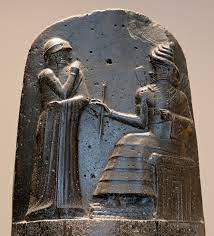The Long Tradition of Debt Cancellation in Mesopotamia and Egypt from 3000 to 1000 BC
by Eric Toussaint
The Long Tradition of Debt Cancellation in Mesopotamia and Egypt from 3000 to 1000 BC
The so-called Hammurabi Code is thought to date back to 1762 BC.
Its epilogue proclaims that “the powerful may not oppress the weak; the law must protect widows and orphans in order to bring justice to the oppressed”.
The many ancient documents deciphered from cuneiform script have enabled historians to establish beyond any doubt that four general cancellations took place during Hammurabi’s reign, in 1792, 1780, 1771, and 1762 BC.
Without wishing to embellish the organisation of these societies of 3000 to 4000 years ago, it should be noted nonetheless that their rulers sought to maintain social cohesion by preventing the constitution of big private domains, and took measures to ensure that peasants enjoyed direct access to the land. They limited the rise of inequality while overseeing the development and maintenance of irrigation systems. Michael Hudson also insists that any decision to declare war was taken by a general assembly of citizens – the “king” did not have the power to make such decisions alone.
It seems that Bronze Age Mesopotamians did not believe in divine creation as the explanation for life on Earth.
The ruler, confronted with chaos, reorganised the world to establish normal order and justice.




Comments
Post a Comment